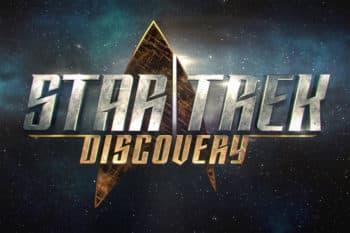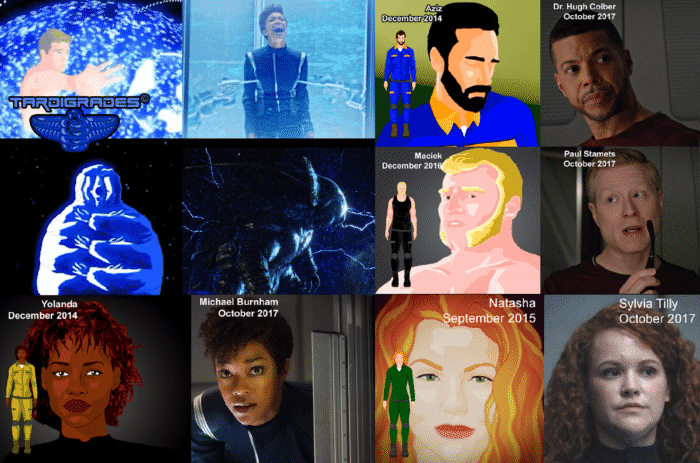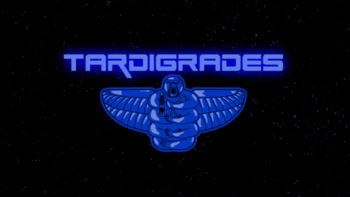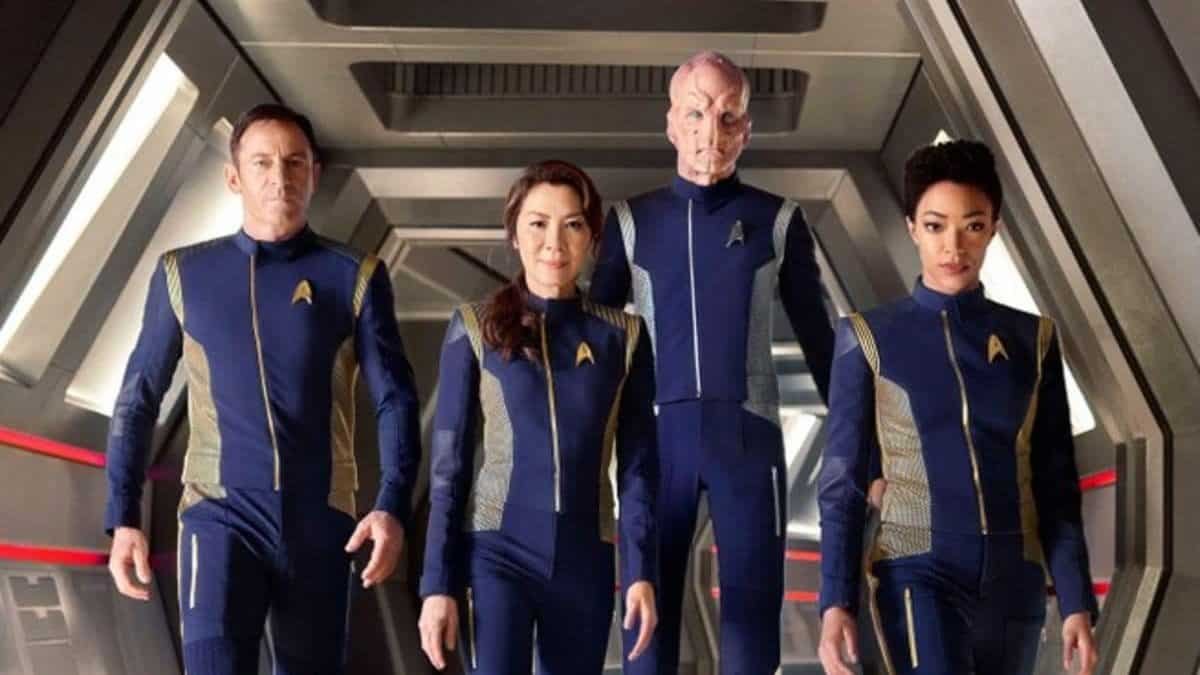Plagiarism, Copyright and Toxic Fandoms

On Friday, a judge granted CBS and Netflix’s motion to dismiss in the infamous Star Trek: Discovery plagiarism lawsuit.
The case was filed by Egyptian video game developer Anas Abdin, who alleged that CBS and others involved in the new series had infringed his in-development video game Tardigrades. He originally outlined his allegations in an October 2018 blog post where he pointed to similarities between the two works including similar characters, the use of tardigrades as a means of space travel and more.
The lawsuit had significant issues from the outset. Anyone with a modicum of knowledge about copyright or how such cases play out knew that the lawsuit was, at best, an extreme long shot. I highlighted many of those deficiencies when the lawsuit was filed and still others, such as an issue with late registration, came out as the case went on.
The long and short of it is that, given the timeline of when information about Tardigrades was available, it is unlikely CBS would have been physically able to plagiarize it and they likely had proof of work that predates Tardigrades. However, even if it could be proved that CBS did copy Tardigrades, it would have to be shown that what was copied was protected by copyright and that the copying was an infringement.
Abdin, in the end, could not meet any of those burdens, let alone all of them.

Abdin himself seems to have accepted this, saying in a recent blog post “I respect the ruling and I expect everyone to do so.”
But respect the ruling many have not. Following the announcement of the ruling, the #JusticeForAnas hashtag became a lightning rod for people to rail against the decision saying things such as “The judge must have been blind or something” or “A tragedy in every sense. Corporate America wins again.“
In the end, the most interesting thing about the case isn’t what happened in the courtroom, but what happened in the fandom around it. While lawsuits like this one are actually fairly common and usually meet a similar fate to this one, what is more unusual is the passion and, on occasion, vitriol from the fan community around it.
Heroes and Villains

Star Trek has one of the largest and most passionate fandoms on the planet. To that fandom, Star Trek: Discovery has been highly divisive. Many fans feel that the show is out of sync stylistically and thematically with the rest of show’s history and is even damaging to the canon laid down by the rest of the show’s history.
For some, this has gone beyond simply not liking the show to being actively angry about it. Treating it not just as a show they don’t enjoy but as an assault on the ones they do love, they’ve turned their ire to CBS and anyone involved with the show.
Among those the most angry about Star Trek: Discovery, Abdin’s allegations and eventual lawsuit became a rallying cry. It fit a narrative they had created, CBS didn’t just create a “bad” show but are villains that are “ruining” Star Trek. As such, the idea of CBS being dirty plagiarists that had ripped off a small independent game developer was vindication.
As a result, they cheered and encouraged the lawsuit, rallied behind Abdin as a bid to fight CBS and, even after he’s accepted the ruling, are encouraging him to appeal. However, given all of the issues facing the case, any appeal would almost certainly be a waste of time and resources.
Even if CBS is every bit the villain that many believe and did actually copy everything that Abdin originally claimed, it’s unlikely that it could sustain a copyright lawsuit. Ideas are not protected by copyright, general character archetypes are not protected and the use of an animal that exists in the real world is not protected.
This was a view echoed by the judge in the case who said, “On a motion to dismiss, a district court may assume that actual copying by defendants occurred and proceed to the question of substantial similarity,” and proceeded dismiss the lawsuit because, “Star Trek: Discovery and Plaintiff’s video game are not substantially similar as a matter of law in concept, characters, settings and overall feel.”
In short, even with all of the benefit of the doubt being given to Abdin, the case falls apart because that which is alleged to be copied is not protectable and the two works are not similar enough to support a copyright claim. It’s as decisive of a ruling as one can get.
Not that it has changed any minds.
Patterns Where None Exist

Shortly after the lawsuit was filed, I posted an article entitled “Creating a Fake Plagiarism Story.” In it, I showed how, with some creative retelling and screenshots, I could “prove” that the Rocky Horror Picture Show (and the Rocky Horror Show) were plagiarisms of the Star Trek episode Catspaw.
This is, of course, completely untrue. Though the two have similarities, they are centered on the tropes that both were playing off of. However, focusing on just those similarities while ignoring the differences, it’s easy to make a compelling-sounding argument for it being a plagiarism.
The reason is that we, as humans, are pre-programmed to spot patterns in the world around us, even if those patterns are often false. I recognized the similarities between the two because I am a huge RHPS fan that happened to be rewatching all of classic Star Trek. Someone else could have just as easily drawn a different comparison.
It’s hard enough to avoid the allure of these false patterns when one is completely neutral. However, when one is predisposed to hate one side these arguments go from being compelling to an unshakable truth.
To be clear, I believe that Abdin genuinely felt that his work was ripped off. Not only is it easy to see how Abdin, who has spent years working on his game, could see those patterns and believe he has been plagiarized, but he also had the very realistic fear of being seen as a plagiarist himself when his game is released.
But where Abdin’s interest comes from a personal concern over his game and his reputation, for others, it comes more from their anger at CBS. Unfortunately for them, their dislike of CBS doesn’t strengthen their plagiarism arguments, much less the copyright infringement case (which has even higher burdens to meet).
Instead, it just makes the atmosphere around the case more toxic and makes it that much more difficult for Abdin to move on from this case.
Bottom Line
To be clear, I don’t think Abdin is a villain here. As we discussed earlier, it’s easy to see patterns and similarities where there are none and he is far from the first creator to feel that his work was infringed when, in reality, it’s just a case of independent development.
His position was incorrect, but wholly understandable.
That makes it tragic to me that, in his blog post, he indicated he doesn’t know if he will complete his game or continue working as an independent developer. That would be, in my mind, a waste. The ruling shouldn’t impede his work. His game, despite being in development, clearly has a lot of fans and this lawsuit should make it clear that he did not copy Discovery.
If any good does come from this case for Abdin, it should be that the world knows his work is original and it has enjoyed a great deal of publicity from it. While that may not justify the time, expense and energy of the lawsuit, it is worth something.
However, even though Abdin is done with this case, it’s clear a part of the internet and Star Trek fandom is not. They will continue to insist that Star Trek: Discovery is an infringement and a plagiarism no matter what the courts, evidence or logic have to say. Their mind is already made up.
For them, this will be a story that will never really die.
Want to Reuse or Republish this Content?
If you want to feature this article in your site, classroom or elsewhere, just let us know! We usually grant permission within 24 hours.
